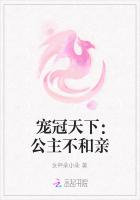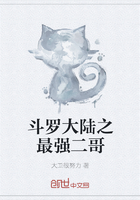into English Gypsy, or indeed into Gypsy of any kind; a cooper, according to the common acceptation of the word, is one who makes pails, tubs, and barrels, but there are no words in Gypsy for such vessels. The Transylvanian Gypsies call a cooper a bedra-kero or pail-maker, but bedra is not Gypsy, but Hungarian, and the English Gypsies might with equal propriety call a cooper a pail-engro. On the whole the English Gypsies did their best when they rendered 'cooper' into their language by the word for 'cartwright.'
Petulengro, the other trade name, is borne by the Gypsies who are known to the public by the English appellation of Smith. It is not very easy to say what is the exact meaning of Petulengro: it must signify, however, either horseshoe-fellow or tinker: petali or petala signifies in Gypsy a horseshoe, and is probably derived from the Modern Greek [Greek: ]; engro is an affix, and is either derived from or connected with the Sanscrit kara, to make, so that with great feasibility Petulengro may be translated horseshoe-maker. But bedel in Hebrew means 'tin,' and as there is little more difference between petul and bedel than between petul and petalon, Petulengro may be translated with almost equal feasibility by tinker or tin-worker, more especially as tinkering is a principal pursuit of Gypsies, and to jal petulengring signifies to go a-tinkering in English Gypsy.
Taken, however, in either sense, whether as horseshoe-maker or tin-worker (and, as has been already observed, it must mean one or the other), Petulengro may be considered as a tolerably fair rendering of the English Smith.
So much for the names of the Gypsies which the writer has ventured to call the trade names; now for those of the other class. These are English surnames, and for the most part of a highly aristocratic character, and it seems at first surprising that people so poor and despised as Gypsies should be found bearing names so time-honoured and imposing. There is, however, a tolerable explanation of the matter in the supposition that on their first arrival in England the different tribes sought the protection of certain grand powerful families, and were permitted by them to locate themselves on their heaths and amid their woodlands, and that they eventually adopted the names of their patrons. Here follow the English names of some of the principal tribes, with the Romany translations or equivalents:-BOSWELL.--The proper meaning of this word is the town of Bui. The initial Bo or Bui is an old Northern name, signifying a colonist or settler, one who tills and builds. It was the name of a great many celebrated Northern kempions, who won land and a home by hard blows.
The last syllable, well, is the French ville: Boswell, Boston, and Busby all signify one and the same thing--the town of Bui--the well being French, the ton Saxon, and the by Danish; they are half-brothers of Bovil and Belville, both signifying fair town, and which ought to be written Beauville and Belville. The Gypsies, who know and care nothing about etymologies, confounding bos with buss, a vulgar English verb not to be found in dictionaries, which signifies to kiss, rendered the name Boswell by Chumomisto, that is, Kisswell, or one who kisses well--choom in their language signifying to kiss, and misto well--likewise by choomomescro, a kisser. Vulgar as the word buss may sound at present, it is by no means of vulgar origin, being connected with the Latin basio and the Persian bouse.
GREY.--This is the name of a family celebrated in English history.
The Gypsies who adopted it, rendered it into their language by Gry, a word very much resembling it in sound, though not in sense, for gry, which is allied to the Sanscrit ghora, signifies a horse. They had no better choice, however, for in Romany there is no word for grey, any more than there is for green or blue. In several languages there is a difficulty in expressing the colour which in English is called grey. In Celtic, for instance, there is no definite word for it;glas, it is true, is used to express it, but glas is as frequently used to express green as it is to express grey.
HEARNE, HERNE.--This is the name of a family which bears the heron for its crest, the name being either derived from the crest, or the crest from the name. There are two Gypsy renderings of the word--Rossar-mescro or Ratzie-mescro, and Balorengre. Rossar-mescro signifies duck-fellow, the duck being substituted for the heron, for which there is no word in Romany. The meaning of Balor-engre is hairy people; the translator or translators seeming to have confounded Hearne with 'haaren,' old English for hairs. The latter rendering has never been much in use.
LEE.--The Gypsy name of this tribe is Purrum, sometimes pronounced Purrun. The meaning of Purrurn is an onion, and it may be asked what connection can there be between Lee and onion? None whatever: but there is some resemblance in sound between Lee and leek, and it is probable that the Gypsies thought so, and on that account rendered the name by Purrum, which, if not exactly a leek, at any rate signifies something which is cousin-german to a leek. It must be borne in mind that in some parts of England the name Lee is spelt Legh and Leigh, which would hardly be the case if at one time it had not terminated in something like a guttural, so that when the Gypsies rendered the name, perhaps nearly four hundred years ago, it sounded very much like 'leek,' and perhaps was Leek, a name derived from the family crest. At first the writer was of opinion that the name was Purrun, a modification of pooro, which in the Gypsy language signifies old, but speedily came to the conclusion that it must be Purrum, a leek or onion; for what possible reason could the Gypsies have for rendering Lee by a word which signifies old or ancient?














